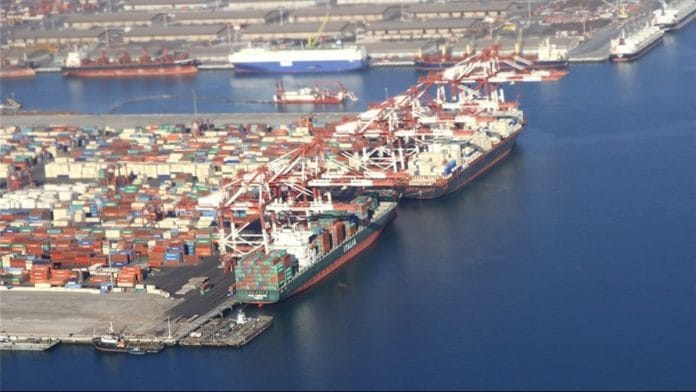New Delhi: Iran is looking for ways to resume its oil sales and promote trade in non-energy sectors with India, especially in light of the sanctions reimposed on the West Asian country by the Donald Trump administration in 2018.
A senior Iranian official who did not want to be named said Thursday, “We had good economic ties with India before sanctions were imposed in 2018. We think there are opportunities for trade even while respecting the sanctions…Our export of oil is under sanctions so we need to work out this problem [with India].”
The official added, “We want to promote trade with India. The Chabahar Port has brought India and Iran closer together. It gives India access to Central Asia and Russia. We will take this issue up with our Indian colleagues.”
India’s imports from Iran have cratered since August 2018, when Trump withdrew from the Joint Comprehensive Plan of Action (JCPOA)—an agreement between Tehran and several western countries to limit Iran’s nuclear programme in exchange for sanctions relief. Between August 2018 and the end of Trump’s term in 2021, the US imposed close to 1,500 sanctions on Iran.
In 2018-2019, India imported $13 billion worth of goods from Iran, of which oil and its derivatives alone accounted for $12.37 billion, according to the Indian Ministry of Commerce and Industry.
However, data shows that, since 2019-2020, India’s imports from Iran have been less than $1 billion a year and between April and October 2024, Indian imports of goods from Tehran stood at $216 million, an indication of the impact of the trade restrictions since the US walked out of the JCPOA.
“Oil and its derivatives were one of the items connecting trade between India and Iran. It is a pity that Indian refineries, which are used to Iranian crude oil, now have to look for alternative sources,” said the Iranian official.
In the vacuum created by the drop in Indian economic engagement with Iran, China has stepped in. Reports from the US indicate that almost all of Iran’s petroleum exports have been going to small independent oil refiners in China, netting Tehran about $70 billion in 2023.
In March 2023, Beijing brokered a rapprochement between Tehran and Riyadh. The two West Asian countries had been in a proxy conflict in Yemen for nearly a decade by then. Highlighting Iran’s appreciation for China’s role in bringing the two countries together, the official said more trilateral cooperation between the three nations is to be expected going forward.
The US campaign of ‘maximum pressure’
During Trump’s first presidency, the US started a campaign of applying maximum pressure on Iran, with a view to achieving a grand bargain that would see Tehran concede on issues of national security for relief from sanctions. However, the campaign has done little to hinder Tehran’s nuclear programme or its role in West Asia.
But now, Iran’s new administration under President Masoud Pezeshkian—who assumed office in July last year—has emphasised that Tehran would be willing to engage with the countries involved in the JCPOA as long as the “commitments are implemented fully and in good faith”.
It remains to be seen how Trump will engage with Iran during his second presidency, which could see Washington return to slapping more sanctions on the Iranian economy. He is set to be inaugurated later this month.
However, while New Delhi has respected the US sanctions on Iran’s economy, it has been willing to increase its oil imports from Russia, despite global pressure to cut ties with Moscow over its war with Ukraine.
Moscow has been the target of economic sanctions and price caps on its oil exports since the start of its “special military operation” in Ukraine in February 2022. Almost three years later, India has benefitted from the restrictions, seeing its imports increase dramatically.
India’s imports from Russia have grown from around $7 billion in 2019-2020 to $61.1 billion in 2023-2024, including around $54 billion worth of oil, according to data from the Ministry of Commerce and Industry.
‘No hardship will be brought to India’
Now Iran is hoping for similar concessions. “It is important to address the issue of purchases of Iranian oil by India…It will definitely be brought up in our discussions,” said the senior Iranian official.
However, the official added that any resolution will ensure that no “hardship” is brought to India. They also said that India and Iran should focus on deepening ties in other sectors, unrelated to energy, including tourism.
“India needs to be more forthcoming in issuing visas to Iranians and likewise we want more Indians to travel to Iran,” said the official, highlighting that there are many “commonalities” the two countries share in terms of history, culture and languages.
The official also said that the Chabahar Port—which is exempt from economic sanctions—could help India and Iran deepen their economic engagement in its vicinity. The two countries signed an agreement over the operation of the port in 2024.
(Edited by Sanya Mathur)
Also Read: Transit of cheap Russian gas to EU ends as deal with Ukraine expires. How it will cost Europe






